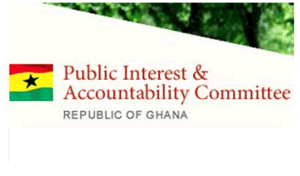PIAC raises concerns over non-involvement of local governance structures in project executions
 The Public Interest and Accountability Committee (PIAC) has raised concerns over the lack of involvement of the local governance structures in the awarding and execution of projects funded with petroleum revenue.
The Public Interest and Accountability Committee (PIAC) has raised concerns over the lack of involvement of the local governance structures in the awarding and execution of projects funded with petroleum revenue.
It said the lack of participation of the local governance structures, particularly the District Assemblies has led to poor supervision and execution of many projects especially those financed with oil money and the situation did not ensure value for money.
The projects therefore in many cases failed to meet the required standards, deteriorated after few years and do not last to serve the purpose they were constructed for.
Nana Kweku Dei, a Member of the Committee raised this concern after leading a delegation of PIAC members to inspect some projects funded with petroleum revenue in the Kassena-Nankana West District of the Upper East Region as part of the Committee’s monitoring visit to the region.
In the Kassena-Nankana West District, the delegation inspected the three-unit Bonia Junior High School, constructed at the cost GH¢257,114.32 under the Northern Development Authority, rehabilitation of the Paga-Sirigu road, supply of 25 hospital beds to the Paga District Hospital, grading of Paga Township Road and the construction of the agenda 111 hospital.
While the Committee was impressed with the work done on the Agenda 111 and the delivery of the 25 beds to the children’s ward of Paga hospital, the Committee was displeased with the work on the other projects.
For instance, the Bonia JHS block which was constructed about a year ago had started deteriorating with visible cracks, broken louvers and the paint peeling off while the structure did not also have eaves.
On the Sirigu-Paga, an amount of GH¢1.3 million of petroleum was allocated in 2021 for the rehabilitation of the road, however, during the visit, it was discovered that the Navio bridge on the Sirigu-Paga, had broken down for almost two years, posing risks to commuters.
Nana Dei explained that checks revealed that the Assemblies, responsible for development at the communities were not involved in the awarding and execution of the projects.
He said the idea of the central government awarding contracts without involving them was causes of low supervision and poor execution of projects funded with oil money.
“We have visited many places where the Municipal, District Chief Executives, coordinating directors and the chief directors in the various regional coordinating councils have raised those concerns that the contractors do not listen to them because the district did not award any contract to them and when it is like that there is no value for money,” he said.
He underscored the need for Parliament and the Executive to make a paradigm shift from awarding contracts without the involvement of the local governance structures to make effective use of the decentralised system that Ghana was currently practicing.
At the Agenda 111, Mr Vincent Mewen, Site supervising Consultant indicated that the project was about 70 percent complete and all things being equal, it would be fully completed and furnished by end of December 2024.
He, however, appealed to government to release funds on time to help them meet the timelines given them.
At the Paga District Hospital, Ms Afisheta Seidu Bogobiri, Deputy Director of Nursing Services at the Hospital, confirmed receipt of 25 beds allocated but appealed for surgical beds as they relied on only one deteriorated bed for operations.
Source: GNA
